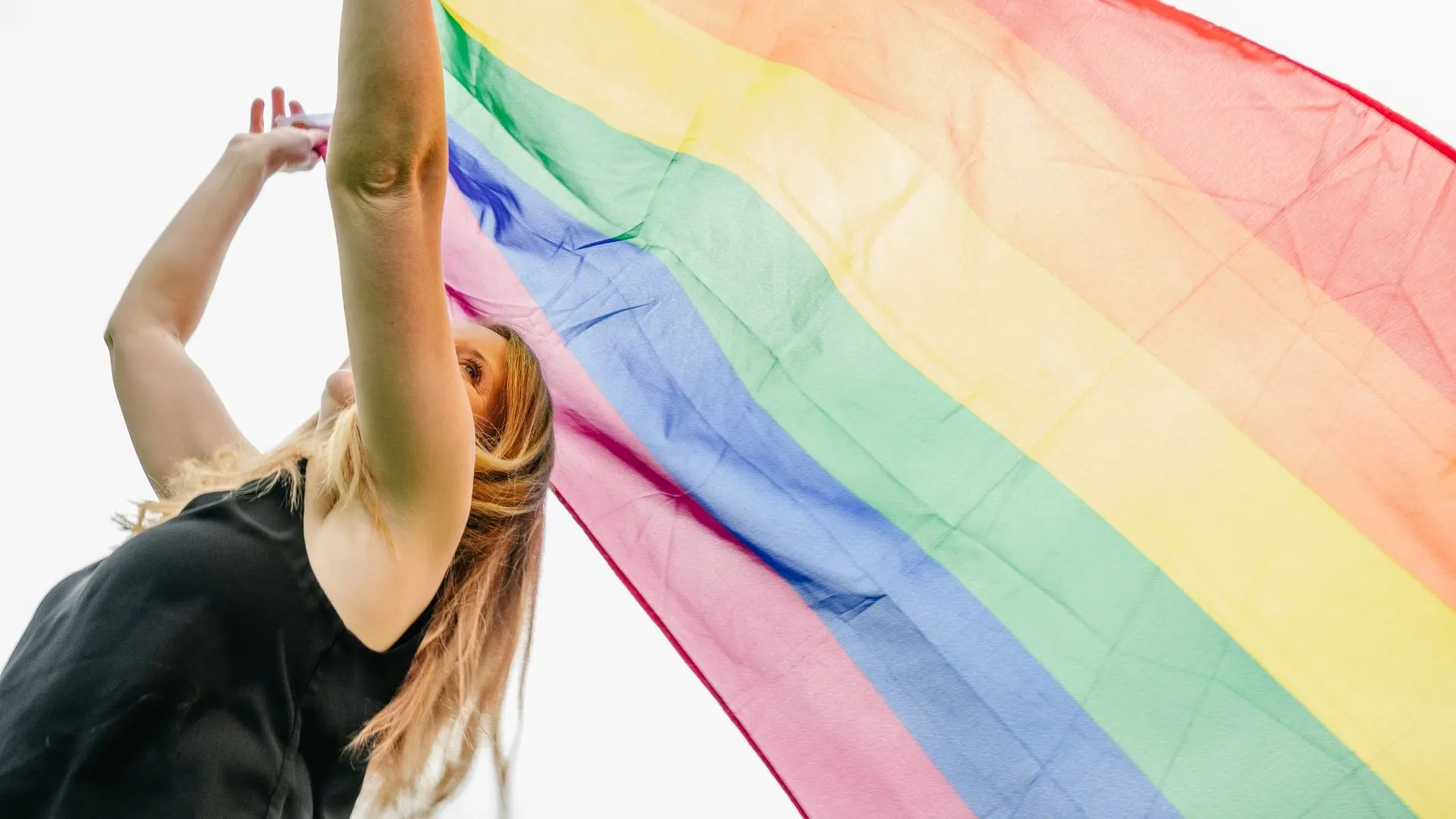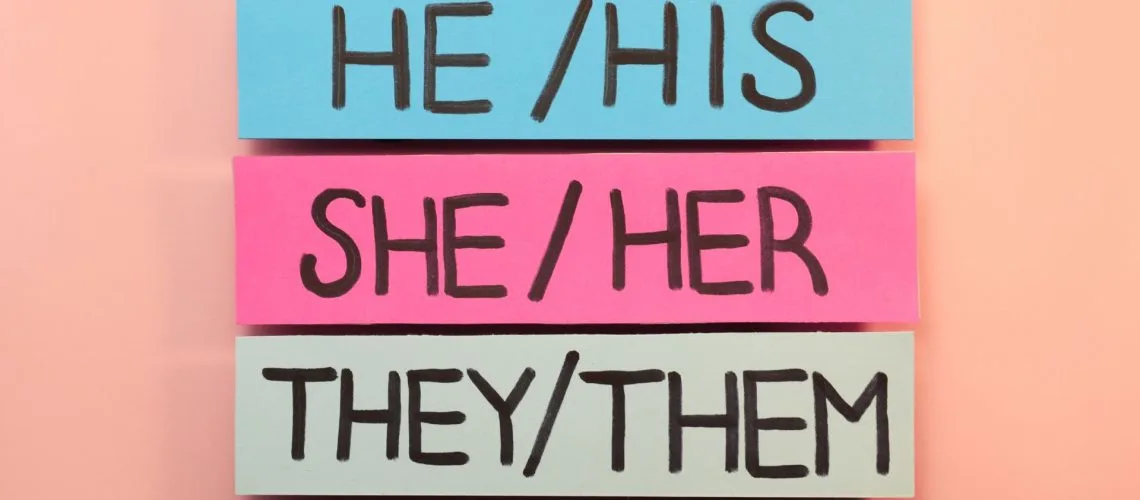To some, they might seem like small, insignificant words, but gender pronouns carry immense power when it comes to validating queer and trans people.
So, let’s chat about why pronouns are such a big deal.
What Are Gender Pronouns?
First things first, let’s break it down. Gender pronouns are the words we use to refer to someone when we’re not using their name. We all know the basic gendered pronouns: he/him for guys and she/her for gals. But it doesn’t stop there. Many people identify beyond the binary, and that’s where things get interesting. Nonbinary people might use pronouns like they/them, ze/hir, or other gender-neutral pronouns.
Why Personal Pronouns Matter
You might be wondering why this is even a big deal and why we need so many sets of pronouns. Well, here’s the thing: using the correct pronouns is a powerful way to show respect and support for someone’s gender identity. It’s a way of saying, “I see you for who you are, and I honor that.”
- Validation and Self-Esteem: For queer and transgender individuals, being referred to by their preferred pronouns can be a game-changer. It validates their identity, boosting self-esteem and mental well-being.
- Inclusivity: Embracing a gender-neutral language creates a more inclusive and welcoming environment. It sends a message that everyone is accepted for who they are, regardless of gender.
- Reducing Misgendering: Misgendering, or using the wrong pronouns, can be incredibly hurtful for people with nonbinary identities. Incorrect pronouns can make someone feel invisible or misunderstood. Using the right pronouns helps prevent this.
- Building Trust: In a therapy setting, using the correct pronouns is essential for building trust. It shows that you’re a safe and affirming space for LGBTQ+ clients.

Respecting Gender Diversity
Gender is a spectrum, not a binary. It’s a rainbow of identities, and personal gender pronouns reflect this beautifully. When you make an effort to learn and use someone’s preferred gender pronouns, you’re taking a step towards understanding and respecting the diversity of human experiences.
How to Use Pronouns
Using pronouns to address gender non-conforming people correctly might seem a bit tricky at first, but it’s all about practice and willingness to learn. Here are some tips to help you on your journey to pronoun mastery:
- Ask and Listen: If you’re unsure of someone’s pronouns, don’t hesitate to ask politely. Listen carefully and use them consistently.
- Respect Changes: Remember that pronouns can change. Be open to updates and revisions as people explore and discover their authentic selves.
- Practice: Practice using pronouns when you’re alone. It can help you become more comfortable using them in conversation.
- Normalize Sharing Pronouns: Share your pronouns as well, even if they align with your gender identity. It sets a positive example and encourages open communication.
- Mistakes Happen: If you slip up and use the wrong pronoun, don’t panic. Apologize sincerely, correct yourself, and move on. It’s all part of the learning process.

Pronouns in Therapy
In our role as an LGBTQ affirmative therapy company, we’ve seen firsthand how using correct pronouns can make a world of difference in therapy sessions. Here’s why they matter in a therapeutic setting:
- Safety: When clients know that their therapist avoids the use of gendered language and respects their gender identity, it creates a safe space for exploring their thoughts and feelings.
- Authenticity: Using the right pronouns allows clients to be their authentic selves without fear of judgment or discrimination.
- Trust: Trust is at the core of any therapeutic relationship. Using correct pronouns helps build that trust and strengthens the therapist-client bond.
- Empowerment: Inclusive pronouns empower clients to embrace their gender identity fully and work through any related challenges or concerns.
The Impact Beyond Therapy
Using correct pronouns isn’t just essential in a therapeutic context; it has a ripple effect in daily life. It fosters a culture of acceptance and respect for LGBTQ+ individuals, contributing to a more inclusive society.
Educating Others
As an LGBTQ+ affirmative therapy company, we often find ourselves in the role of an educator. It’s essential to share knowledge about gender pronouns with friends, family, and colleagues. Together, we can create a world where everyone’s identity is honored and respected.
In using correct pronouns, we validate the identities of queer and trans individuals, creating a more inclusive and affirming world for all. So, let’s make an effort to learn, practice, and share pronouns. Let’s embrace the beautiful tapestry of gender identities and show the world that respect knows no bounds. Remember, it’s not just about words; it’s about making a difference in the lives of those we encounter every day. Together, we can build a more loving and accepting world for everyone, one pronoun at a time.

Note, if you’re a trans person living in West Hollywood, CA, where our company is based, there are services out there for you. Check out what the “T.R.U.E. Program” has to say below:
Top of Form
Bottom of Form
The T.R.U.E. Program (Transforming Resources Unveiling Excellence) was created exclusively to support Transgender, Gender non-conforming, and Intersex (TGI) individuals who live, work, go to school, or spend a significant amount of time within the City Of West Hollywood and is funded by the City of West Hollywood.
What we do is make assessments and develop an individualized case plan to address the specific needs of each individual to help them address ongoing challenges they might face accessing housing, employment, medical, and other supportive services.
Once again, here are the requirements to be part of the T.R.U.E Program
- You must be 18 years or older
- You must be Transgender, Gender non-conforming, or Intersex
- You must live, work, go to school, or spend a significant amount of time in the City Of West Hollywood
Whether or not these TGI individuals may qualify with the T.R.U.E. Program or not, they can stop by our office for an initial client intake at 3055 Wilshire Blvd, Suite #350, Los Angeles, CA 90010.



